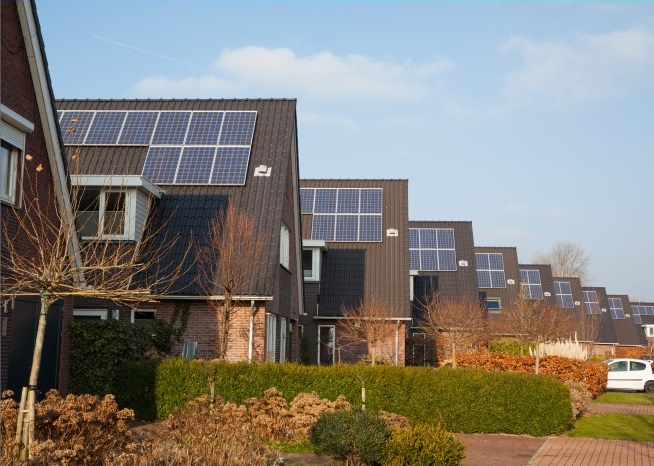A guide for communities seeking to boost local adoption of solar power is based on research in part from Duke University's Fuqua School of Business.
The "Solarize Your Community" guide resulted from three years of study by Professor Bryan Bollinger and Kenneth Gillingham, an economist at the Yale School of Forestry & Environmental Studies.
The guide book sets out the roles public, private and nonprofit entities play in boosting the adoption of solar energy and offers a step-by-step guide to setting up a local campaign.
"We went into this project with two main objectives," Bollinger said. "One was to conduct high quality research on the drivers of solar adoption, and the other was to disseminate our findings in order to facilitate the growth of solar energy."
The 27-page guide distils the findings from the researchers' study of Solarize campaigns in Connecticut. The program creates community-specific incentives for homeowners to install solar panels by offering group pricing and using local ambassadors.
The campaigns tripled the number of solar installations and reduced the average cost of residential solar during the campaigns by as much as 30 percent.
The researchers found those efforts could push awareness about residential solar energy past a tipping point beyond which installations increased dramatically. The researchers also tested different aspects of the program to see how they affected a campaign's success.
They found the presence of one solar rooftop installation increased the average number of installations within half a mile by nearly 50 percent in one six-month spell. The campaigns tripled the number of solar installations and reduced the average cost of residential solar during the campaigns by as much as 30 percent.
The Connecticut program was supported by the U.S. Department of Energy SunShot Initiative and two local nonprofits: SmartPower and the Connecticut Green Bank.
"The reason we created this guidebook was to help empower communities to run their own Solarize campaigns even if they don't have someone like the Connecticut Green Bank or Smart Power coming in to assist them," Bollinger said.
One of the most important findings was that the campaigns were more successful when communities opted in on their own, which usually happened when one or two town leaders got excited about promoting solar energy and recruited other enthusiastic volunteers. The guide book provides the tools for communities to replicate that success.
"One of the reasons I work in the areas of energy, the environment and health is because my research can have important, substantive impact," Bollinger said. "We want to inform decision-makers who can use this research to make positive change."
